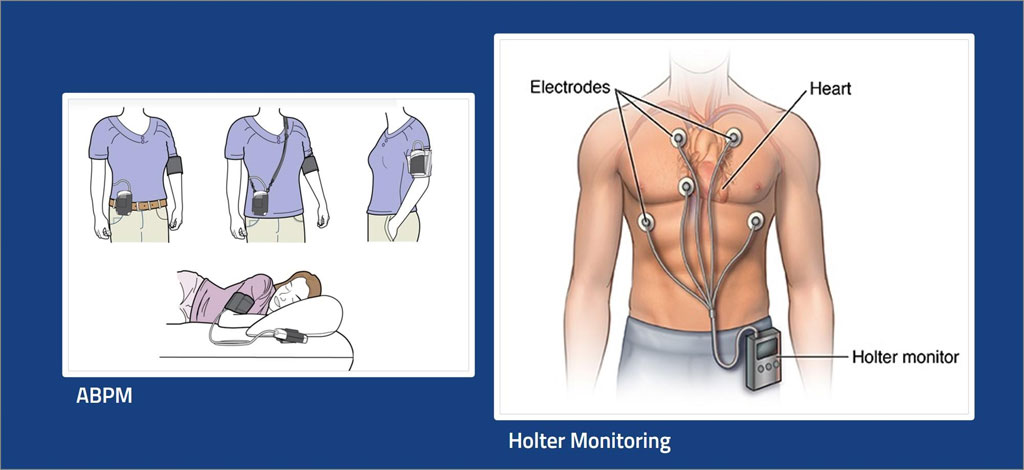Ambulatory Blood Pressure Monitoring
Ambulatory Blood Pressure Monitoring (ABPM) is a diagnostic technique used to measure blood pressure at regular intervals over a 24-hour period. This method provides a more comprehensive and accurate assessment of a person's blood pressure profile compared to traditional office-based measurements taken during a single visit. ABPM is particularly useful for individuals with suspected hypertension, white coat hypertension, masked hypertension, or those with fluctuating blood pressure patterns.
- Device: ABPM involves wearing a portable blood pressure monitor that is programmed to automatically inflate and deflate at specified intervals, usually every 15 to 30 minutes during waking hours and every 30 to 60 minutes during sleep.
- Duration: The monitoring period typically lasts for 24 hours, allowing healthcare professionals to gather a more comprehensive dataset that includes daytime and nighttime measurements.
- Holistic Assessment: ABPM provides a more comprehensive and representative view of a person's blood pressure throughout their daily activities and sleep.
- Identification of White Coat Hypertension Some individuals may experience elevated blood pressure only in a clinical setting (white coat hypertension), and ABPM helps identify this by monitoring blood pressure in a more natural environment.
- Detection of Masked Hypertension: Conversely, some individuals may have normal blood pressure in the clinic but elevated blood pressure outside of it (masked hypertension), which ABPM can reveal.
- Interpretation: Results from ABPM are used to assess average blood pressure values, as well as variations during different periods of the day and night. This information aids in making more accurate diagnoses and treatment decisions.
- Application: ABPM is often recommended for patients with suspected hypertension, those undergoing antihypertensive treatment to assess its effectiveness, and individuals with conditions requiring closer monitoring of blood pressure fluctuations.
- Patient Experience: During the monitoring period, individuals are encouraged to go about their normal daily activities. They may be asked to keep a diary of activities, sleep times, and any symptoms experienced.
- Limitations: While ABPM is a valuable diagnostic tool, it may not be suitable for everyone, and certain conditions or circumstances may affect its accuracy. Factors like irregular sleep patterns or certain medical conditions may impact the results.

